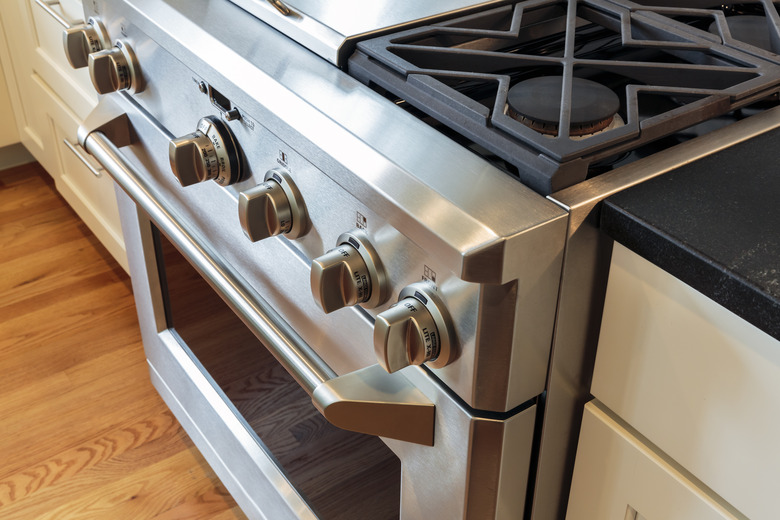Advantages & Disadvantages Of Stainless Steel Appliances
You see stainless steel ovens, microwaves, refrigerators and dishwashers in many kitchens. Stainless steel is an alloy rather than a naturally occurring metal, which means it's made of a mixture of several different metals. Before buying a stainless steel appliance, consider its pros and cons.
TL;DR (Too Long; Didn't Read)
Stainless steel appliances are attractive, modern and extremely durable, but they are more expensive than other types of appliances and require more cleaning because they show even light smudges and marks.
Advantages of Stainless Steel Appliances
Advantages of Stainless Steel Appliances
Many people opt for stainless steel appliances because they look sleek and modern and complement any decor, from natural wood to marble. Stainless steel appliances also coordinate effortlessly with other stainless steel items, like blenders, toasters and mixers. If you sell your home in the future, stainless steel appliances may make your kitchen more appealing to prospective buyers.
Because stainless steel is an alloy, it is extremely durable and able to withstand many years of use without showing signs of wear and tear. Stainless steel is also resistant to water damage and rust, which are two important considerations in a kitchen.
Stainless steel is nonporous, making it a more hygienic surface than wood or plastic. If you have kids or animals in your home, stainless steel appliances are less likely to become breeding grounds for germs and bacteria.
Disadvantages of Stainless Steel Appliances
Disadvantages of Stainless Steel Appliances
Typically, stainless steel appliances are more expensive than other types of appliances. This fact may rule out stainless steel appliances if you are on a tight budget.
Also, stainless steel shows fingerprints and small marks and smudges. Stainless steel may be stainless, but it's not smudge-proof. If you don't like to spend a lot of time cleaning your appliances, stainless steel appliances may be less appealing, particularly if you have young children at home leaving fingerprints everywhere.
Another possible disadvantage of stainless steel appliances is the inability to attach magnets. Depending on the combination of metals used to make a stainless steel appliance, a magnet may not stick to it. If you like to display photographs, artwork and reminders on the front of your refrigerator, this may put you off stainless steel.
Caring for Stainless Steel Appliances
Caring for Stainless Steel Appliances
Clean stainless steel with a little soap and water. Simply add liquid soap to a cloth soaked in warm water and wipe off any marks and smudges. Use glass cleaner and a paper towel to remove fingerprints. Special cleaning products are available for stainless steel appliances.
Cite This Article
MLA
Gillespie, Claire. "Advantages & Disadvantages Of Stainless Steel Appliances" sciencing.com, https://www.sciencing.com/advantages-disadvantages-stainless-steel-appliances-6088439/. 24 April 2018.
APA
Gillespie, Claire. (2018, April 24). Advantages & Disadvantages Of Stainless Steel Appliances. sciencing.com. Retrieved from https://www.sciencing.com/advantages-disadvantages-stainless-steel-appliances-6088439/
Chicago
Gillespie, Claire. Advantages & Disadvantages Of Stainless Steel Appliances last modified March 24, 2022. https://www.sciencing.com/advantages-disadvantages-stainless-steel-appliances-6088439/
